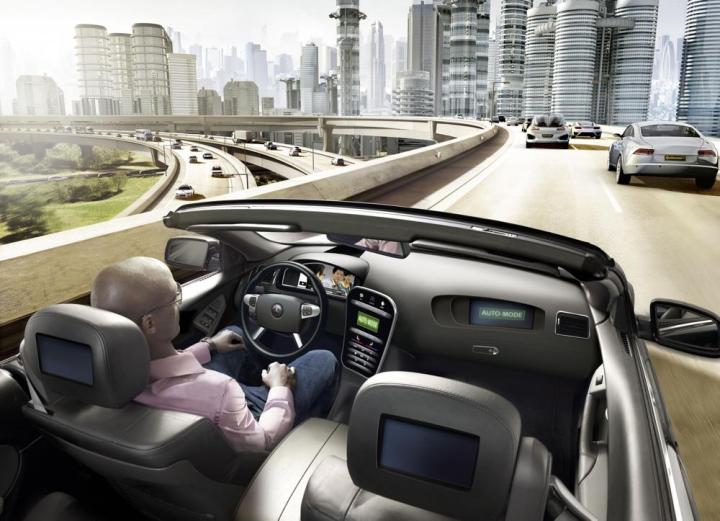
According to the study, consumers in general maintain a large interest in the features that enable full automation, such as radar, sensors, cameras, and light detection and ranging (LIDAR). Other attractive features include night vision, adaptive headlights, lane change assist, traffic jam assist, medical emergency stop, smart intersection, and predictive vehicle control.
When it comes to fully self-driving vehicles, however, customer interest varies based on age. According to the study, over half of Generation Y and Z drivers trust in the developing technology. Compare this to the 41 percent of Gen. Xers, 23 percent of Baby Boomers, and 18 percent of Pre-Boomers who express confidence in the new tech.
Additionally, just 27 percent of Gen. X, 18 percent of Gen. Y, and 11 percent of Gen. Z drivers say they “definitely would not” place their trust in a car that drives itself. The same goes for nearly half of the older generations — 39 percent of Baby Boomers and 40 percent of Pre-Boomers.
No matter what letter precedes a generation, there is one concern shared by all — security. Privacy and the risk of vehicular/system hacking or hijacking are universal worries.
“The level of trust is directly linked to the level of interest in a new technology among automobile buyers,” said Kristin Kolodge, executive director of driver interaction & HMI research at J.D. Power. “Acceptance can be increased with exposure over time and experience with automated technologies. But trust is fragile and can be broken if there is an excessive number of incidents with automated vehicles.”
The study also shows that Gen. Y and Gen Z owners are twice as likely as Gen Xers and five times as likely as Boomers and Pre-Boomers to use alternative forms of mobility, such as transportation sharing/co-ownership, journey-based ownership, and mobility on demand. Nearly 60 percent of Gen Y vehicle owners are “definitely” or “probably” interested in fully automated vehicles, and a third of them would drop $3,000 or more for the tech.
Delving further into the study reveals the impact that price has on technology preference. The higher priced safety-related features, such as night vision and lane change assist, did not break the top 10, while the more accessible camera rear-view mirror and camera side-view mirrors proved popular. The cheapest tech earned the top spots, including economy navigation, simple wireless device connection, smart parking, and predictive traffic. At an average value of $500, self-healing parking was the priciest entry in the top 10.
When it comes to night vision, 70 percent of all vehicle owners said they would love to have it, which was the third highest pre-price expression of interest. However, this dropped to 23rd when they heard about the $2,000 price. Interest rose again when the price was shown with a potential reduction.
The lowest pre-price expression of interest included trailer connect assist and trailer towing visibility, both at under 30 percent, though these garner more interest in certain segments of the driving population, such as large SUV owners.
Now in its second year, the 2016 U.S. Tech Choice Study was held from February through March 2016 and included an online survey of nearly 8,000 consumers who purchased or leased a new vehicle within the past five years.
Editors' Recommendations
- Volkswagen is launching its own self-driving car testing program in the U.S.
- How a big blue van from 1986 paved the way for self-driving cars
- Tesla pulls latest Full Self-Driving beta less than a day after release
- Watch San Franciscans take a ride in Waymo’s self-driving car
- Tesla issues stark warning to drivers using its Full Self-Driving mode


